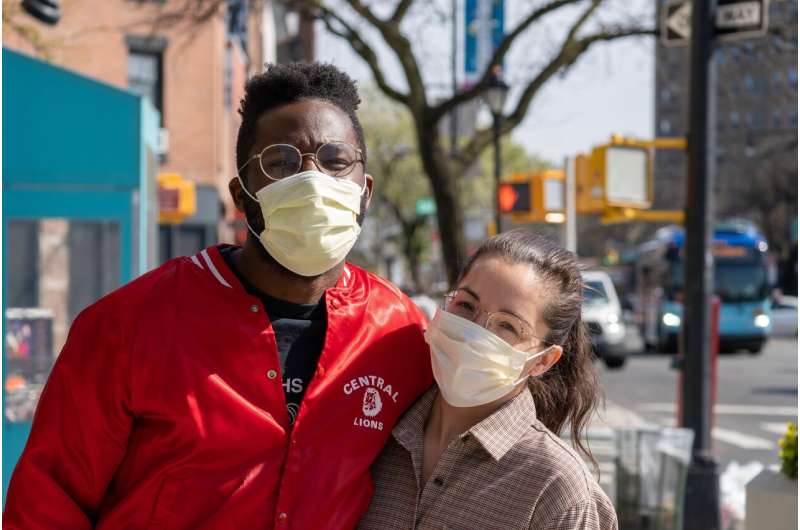
Researchers from the Universities of Bristol and Surrey have found that well-fitting, three-layered cloth masks can be as effective at reducing the transmission of COVID-19 as surgical masks.
At the height of the COVID-19 pandemic, 139 countries mandated the use of face coverings in public space such as supermarkets and public transports. The World Health Organization also advises the use of face coverings and offers guidance on their effective features. Face coverings suppress the onward transmission of COVID-19 through exhalation and protect the wearer on inhalation.
In a paper published by the Physics of Fluids journal, the researchers detail how they looked at how liquid droplets are captured and filtered out in cloth masks by reviewing and modeling filtration processes, including inertial impaction.
Inertial impaction does not filter as a sieve or colander does—it works by forcing the air in your breath to twist and turn inside the mask so much that the droplets can’t follow the path of the air. Instead, the droplets crash into fibers inside the mask to prevent inhalation.
The team found that, under ideal conditions and dependent on the fit, three-layered cloth masks can perform similarly to surgical masks for filtering droplets—with both reducing exposure by around 50 to 75 per cent. For example, if an infected person and a healthy individual are both wearing masks, scientists believe this could result in up to 94 per cent less exposure.
Dr. Richard Sear, co-author of the study and Leader of the Soft Matter Group at the University of Surrey, said:
Source: Read Full Article
